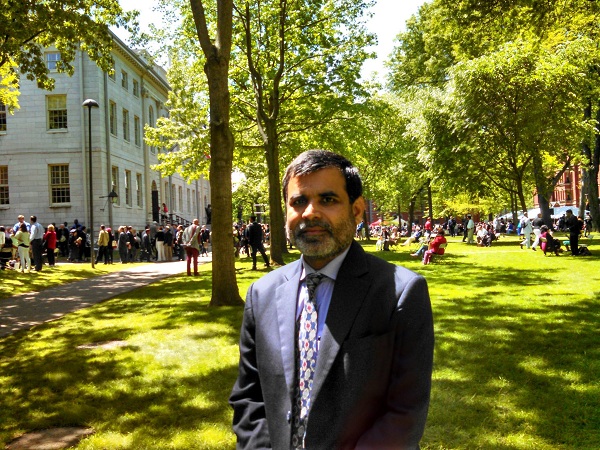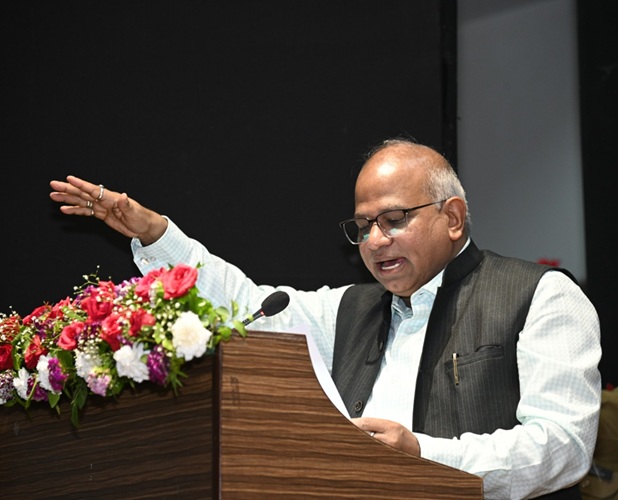By Dr Shariq Nisar
Shariah banking, PLS banking, Ethical banking, Interest-free banking are different names used to identify Islamic banking which primarily works without relying on interest mechanism. Interest is strictly prohibited in Islam and therefore many countries especially those where Muslims live in majority have developed an alternate way of banking where profit is earned by banks through trade and investments rather than pure lending. Since early nineties, many developed countries took great interest in this new form of banking to attract investments from energy rich Arab world and also to improve financial inclusion of the domestic population which was hitherto shying of making full use of banking facilities due to religious concerns.
In India, while interest-free institutions can be traced prior to the country’s independence the real effort by Indian Muslims began during first non-congress government in 1970s. Nothing happened as the idea of Islamic banking itself was under formative stage then. Unrestrained proliferation of NBFCs in early 1990s saw the emergence of many community led institutions that claimed to work on Islamic principles of shunning interest and sharing of the risk and rewards with shareholders and depositors. In late nineties, RBI introduced large scale changes in NBFC regulations which eventually led to closure and collapse of hundreds of NBFCs in the country including some prominent Islamic NBFCs. After the new NBFC regulations the only Islamic Finance Company that survived was Kerala based Alternative Investments and Credits Ltd. (AICL). In 2009, Kerala Government tried to copy this model by promoting an Islamic NBFC (Al-Baraka Financial Services Ltd.) that would work without indulging in interest. The idea was to seek investments from public and some rich NRIs and use the funds to develop infrastructure in the state. All those contributing funds would be paid dividend instead of interest. Very soon a PIL was filed against Al-Baraka on the following counts:
- Forming an Islamic finance company was a clear instance of state favoring a particular religion;
- Taking advice from scholars of a particular community (Shariah Scholar) shows the identification of state with a particular religion to the exclusion of other faiths;
- Shariah prohibition of interest, alcohol and others are against the constitutions of India
The lower court ordered immediate stay of the company’s operation but Kerala High Court after hearing the views of Central Government, Reserve Bank of India and several others finally dismissed the petition filed against the company and paved the way for India’s first company promoted by government to do business on Islamic principles.
However, it’s worth noting that RBI stood in support of the petitioner arguing in the court that Islamic banking cannot function under Indian financial regulations. Prior to this RBI in its Working Group Report in 2005 (more popularly known as Anand Sinha Committee Report) had concluded that Islamic banking is not possible within existing Indian finance regulations. The same position was reiterated by the RBI Governor at a public function in 2012.
“The banking act doesn’t conform to Islamic banking because it allows banks to borrow from and deposit money with RBI on Interest” (D Subbarao, Governor RBI, Times of India October 4, 2012).
To prove its position RBI canceled the NBFC license of AICL on the allegation that AICL violated RBI’s prescription of fair interest practice code. This was very surprising as RBI had given license to the company based on the proposal that company would work on the basis of profit and loss sharing instead of interest. The company since has gone to the court where the matter is still pending.
The change in RBI’s leadership in 2013 brought some fresh thinking which probably led RBI to develop a positive impression of the concept. First it was Deepak Mohanty Committee that in December 2015 recommended that;
“commercial banks in India may be enabled to open specialized interest-free windows with simple products like demand deposits, agency and participation securities on their liability side and to offer products based on cost-plus financing and deferred payment, deferred delivery contracts on the asset side”.
And thereafter an RTI query has revealed that RBI has written to the government regarding gradual introduction of Islamic banking in the country. Media went gung-ho in praising this move of RBI as sign of new government’s commitment to “Sabka Saath Sabka Vikas” but soon all euphoria died when the Union Finance Ministry declared that Islamic banking was not relevant any more. The Minister of State for Finance Mr. Santosh Kumar Gangwar replied in the Loksabha that various legal changes would become necessary if even limited products were to be introduced under Islamic banking.
One fails to understand the logic behind not allowing a banking model that is practiced in nearly 75 countries of the world including some of the most secular, democratic and advanced.
| Time Line (Islamic Banking and Finance in India) | Year |
| RBI appoints Anand Sinha Committee for studying Islamic Financial Products | 2005 |
| Raghuram Rajan Committee recommends Interest-free banking for financial inclusion | 2008 |
| Ministry of Minority Affairs invites bids for reconstruction of National Minority Development Finance Corporation (NMDFC) on shariah Lines | 2008 |
| SEBI permits India’s first shariah compliant Mutual Fund Scheme | 2009 |
| SEBI permits India’s first shariah compliant Venture Capital Fund | 2009 |
| GICRe enters Retakaful (Islamic reinsurance) in the foreign reinsurance market. | 2009 |
| Government of Kerala announces starting of an Islamic NBFC | 2009 |
| BSE and TASIS launch BSE-TASIS Shariah 50 Index | 2010 |
| Kerala High Court dismisses petition filed against Kerala-based Islamic finance company | 2011 |
| RBI cancels license of Islamic NBFC | 2012 |
| RBI Constituted an Inter-Departmental Group (IDG) on Islamic Banking to understand the feasibility of introducing Islamic banking in India | 2013 |
| SBI defers the launch of Shariah Equity Fund | 2014 |
| RBI Recommends Introduction of Interest-free Banking by Indian Commercial Banks | 2015 |
| RBI’s Inter-Departmental Group (IDG) on Islamic Banking submits its Report to the Government of India | 2016 |







0 Comments